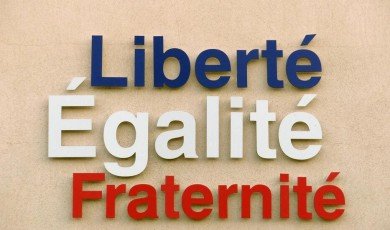Presidential, Legislative, and Municipal Elections: What Are the Differences?
Understanding the Key Roles and Mechanisms That Define the French Electoral System
Introduction: Understanding the French Electoral Landscape
Elections are the cornerstone of any democracy, and France is no exception. Whether it’s a presidential, legislative, or municipal election, each type serves a distinct purpose within the country's political system. But for many, the distinctions between these three major electoral events can be confusing. What do they each decide? Who can vote, and how do the outcomes shape everyday life in France?
In this comprehensive overview, we dive into the key differences between presidential, legislative, and municipal elections in France. We’ll explore their specific roles, the voting processes, the responsibilities of the elected officials, and why understanding these can help you make informed choices when it’s time to vote. Whether you’re a seasoned political observer or just beginning to engage with French democracy, this guide will illuminate the unique aspects of each election.
Your vote matters—let’s discover why!
Presidential Elections: Electing the Nation’s Leader
Purpose and Significance
The presidential election in France is perhaps the most high-profile political event in the country. Held every five years, it determines the head of state and the most powerful political figure in the French system—the President of the Republic.
The President embodies national unity, guides the country’s domestic and foreign policy, and can wield substantial influence over government direction. Thus, the presidential election captures the imagination and attention of both the French people and the international community.
Who Can Vote?
Every French citizen aged 18 or over, who is registered on the electoral roll, can vote in the presidential election. Voting is not compulsory but is seen as a civic duty.
How Does It Work?
- Two-Round System: The presidential election is organized in two rounds (if necessary). In the first round, if no candidate secures an absolute majority, a second round is held between the two candidates with the highest votes.
- Direct Universal Suffrage: Every eligible citizen's vote has equal weight across the nation.
- Major Candidates: While many can declare candidacy, only those who gather sufficient support (a minimum of 500 endorsements from elected officials) can stand.
- Mandate Length: Five years (quinqennium), renewable once consecutively.
The President’s Powers
- Represents France internationally.
- Appoints the Prime Minister and, on the Prime Minister’s advice, appoints and dismisses other ministers.
- Can dissolve the National Assembly and call new legislative elections.
- Commander-in-chief of the armed forces.
The outcome of the presidential election has far-reaching implications for French policies at home and abroad, setting the tone for the nation’s governance.
Legislative Elections: Shaping the Nation’s Laws
Purpose and Significance
The legislative elections are held, usually a few weeks after the presidential election, every five years. Their goal? To elect the 577 members of the National Assembly, the lower chamber of France’s Parliament. These deputies are crucial: they draft, debate, amend, and vote on France’s laws. They also have the power to overturn a government by passing a motion of no-confidence.
In the French system, the majority group or coalition in the National Assembly generally determines who becomes Prime Minister and the makeup of the government.
Who Can Vote?
The same rules as the presidential election apply—French citizens who are registered to vote and are aged 18 or over participate in legislative ballots in their local constituency.
How Does It Work?
- Single-Member Districts: France is divided into 577 constituencies; each elects one deputy.
- Two-Round System: Like the presidential election, if no candidate achieves an absolute majority in the first round, a second round is held. In the second round, candidates who obtained at least 12.5% of registered voters in the first round can stand.
- Mandate Length: Five years.
The Deputies' Powers
- Legislate and vote on the national budget.
- Question and hold the government accountable through debates and inquiries.
- Can bring down the government via a motion of censure.
In summary, legislative elections determine the direction of France’s legislative agenda and balance of power between the executive and legislative branches. They are vital for the country's democratic health and for shaping everyday policy decisions.
Municipal Elections: Democracy at the Local Level
Purpose and Importance
While presidential and legislative elections get most of the media spotlight, municipal elections are where democracy touches the daily lives of citizens the most. Every six years, citizens elect their local representatives—municipal councilors—who, in turn, choose the mayor for each commune (municipality).
Whether you live in the heart of Paris or a small rural commune, municipal elections decide who manages local schools, public transport, urban planning, cultural events, and much more.
Who Can Vote?
Unlike national elections, not only French citizens but also citizens of other EU countries residing in France can vote in municipal elections (excluding mayoral positions). Voters must be registered on the municipal electoral list and be aged 18 or over.
How Does It Work?
- Two-Round System with Proportional Representation: In towns of 1,000 inhabitants or more, the system is a mix of proportional and majority voting, fostering representation of diverse political forces while ensuring governance stability. In the second round, lists obtaining at least 10% in the first round can proceed.
- In Smaller Communes: Voting is often “panachage”, where voters can cross out and add candidates individually, offering greater flexibility.
- Mandate Length: Six years.
The Mayor and Municipal Council's Powers
- Urban planning and development
- School buildings and educational supplies
- Local services (water, waste, transport)
- Cultural, sports, and community events
- Local security and emergency matters
Engaging with municipal elections is crucial for any citizen hoping to influence life in their towns and neighborhoods. Decisions made here resonate immediately, affecting the quality-of-life and day-to-day conveniences of every resident.
Comparison Table: Main Differences between the Elections
| Election Type | Frequency | Who is Elected? | Voting System | Main Powers | Who Can Vote? |
|---|---|---|---|---|---|
| Presidential | Every 5 Years | President of the Republic | Two-round, direct universal suffrage | Head of State, appoints government, foreign and domestic policy | French citizens aged 18+, registered |
| Legislative | Every 5 Years | 577 Deputies (National Assembly) | Two-round, single-member constituencies | Make laws, control government, vote budget | French citizens aged 18+, registered |
| Municipal | Every 6 Years | Municipal Councillors, Mayors | Two-round, proportional/list or “panachage” | Manage local government and affairs | French & EU residents aged 18+, registered |
Conclusion: The Power of Your Vote at Every Level
Understanding the differences between presidential, legislative, and municipal elections is vital to appreciating the depth and strength of French democracy. Each election gives citizens a voice in different spheres—national leadership, lawmaking, and local administration. By participating thoughtfully in all three, voters help shape policies that affect everything from France’s global standing to the streetlights on their corner.
If you are eligible, make sure you are registered, informed, and ready to vote when the next elections come around. Your vote is your power to influence life in France.
For more guides and updates on French elections, follow our blog and be prepared to make your vote count!









